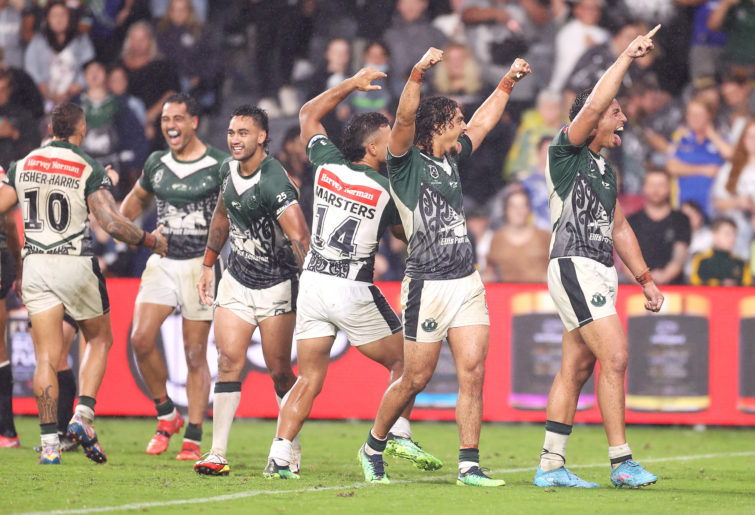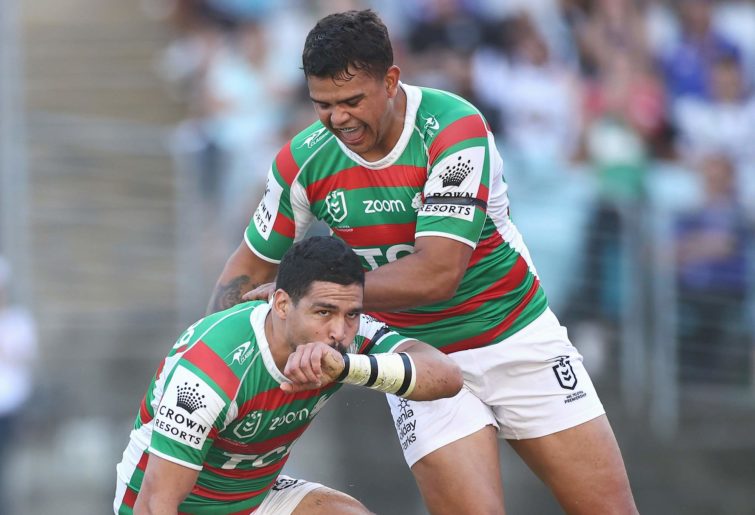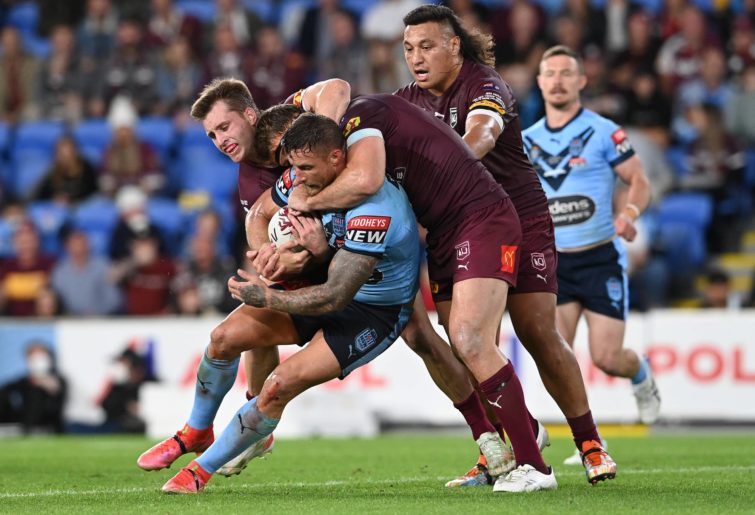If the All Stars game that pits the Indigenous All Stars against the Maori All Stars is to become the enduring annual celebration that it deserves to be then the players need to be paid the same per game as State of Origin players are.
If NRL HQ is really serious and committed about properly celebrating what a massive contribution Aboriginal and Torres Strait Islander Australians and the Maori peoples bring to the game of rugby league then they must put their money where their mouths are – or risk having their statements along those lines being confused for platitudes.
NRL HQ are serious and committed, and they’ve done a great job so far, and for pretty much all the right reasons too.
I love the concept of the All Stars Match.
And I love watching footy.
So, it was great seeing rugby league returning to our screens last Saturday night. What’s more, it was a really entertaining match, in spite of the driving western Sydney rain it was played in.
But we still haven’t got the match quite right.
When the concept of the Indigenous All Stars Game came to fruition well over a decade ago the main issue was that, while it was brilliant to recognise and celebrate the wonderful and massively disproportionate part that Aboriginal and Torres Strait Islander Australians have played in the game of rugby league, to truly honour that we had to pit their passion, pride and skill against an appropriate opposition. Like versus like.
While a good starting point, the very loose association that was the NRL All Stars/World All Stars was never going to be that.
They had no cause. No history. No uniting element.
How could they possibly ever compete with a side that had all of those things?
With the exception of when Cam Smith and Wayne Bennett led their mercenaries to victory, the reality is they couldn’t.
They couldn’t bring the real passion to the event that it needed.
That it demanded.
Back in 2017 I called for the match to be played against the Maoris, with many at the time disagreeing with the idea.
I didn’t want club players risked for a lesser event. I still don’t.
I also didn’t want this match that should be a great celebration to turn into an inconvenience and to die a slow death like the annual City-Country game did.
To NRL HQ’s great credit, in 2019 the Maori All Stars did become the Indigenous All Stars’ opponents.

The Maori side celebrate victory during the NRL All Stars match. (Photo by Mark Kolbe/Getty Images)
Even then I warned that the scheduling of the match still prevented it from getting to the heights that it should achieve.
It is one level of frustration for me – a fan – watching a player from my club side getting suspended for performing a stupid shoulder charge. It is an even higher level when he does it while not playing for my side. Multiply that by 100 for the coach and CEO.
Putting this game just before the season start was always going to see player participation hurt.
Ideally, the game needed to be played after the NRL grand final or we’d see lots of eligible players not take part due to pressure from their clubs, worried about their precious players getting injured or suspended.
The reality is that the better the player, the more pressure they’ll be under from their clubs to not risk injury or suspension. So, it isn’t just any player the scheduling risked, it was the best players.
From my vantage point it is impossible for me to say – with any authority at all – why Jack Wighton, Reece Walsh (also eligible for the Maori All Stars), Alex Johnston, Cody Walker, Jamal Fogarty or Tyrone Peachey did not play for the Indigenous All Stars in last Saturday night’s game.

(Photo by Cameron Spencer/Getty Images)
But they weren’t there. Perhaps if a number of them had played the result may have been different?
Of course, you could also point to the eligible Maori players who weren’t there. Jared Warea-Hargreaves, Brandon Smith, Kalyn Ponga, Jarome Hughes, Joey Manu, Valentine Holmes and Charnze Nicoll-Klokstad are all fantastic players who didn’t take part.
If we are to make this game mean all that it can, it needs all of the best players insisting that they play.
Moving this fixture to after the grand final will really assist in making this happen.
However, even that won’t be enough to ensure that this event keeps developing into the annual jewel in the crown of our game that it should be.
The biggest leg up the All Stars game can get is for the participating players to receive the same payment they’d receive if they were playing in a State of Origin game.
There is no amount of pressure a club or a coach can put on one of their players that will stop them playing for Queensland or NSW in the annual Origin series if they are selected.
While I’m sure that the fierce rivalry and the player’s state pride play a large part in that, you can be pretty sure that getting $30,000 per game has a great deal to do with it too.
Right now the player payment for the All Stars game is $5000.
That’s just 16.7 per cent of what an Origin player receives.
Effectively – though certainly not intentionally – the NRL is saying that State of Origin is 83.3 per cent more important than the All Stars game.

(Photo by Bradley Kanaris/Getty Images)
Make no mistake, State of Origin is one of the biggest cash cows in Australian sport. That NRL HQ puts it on a pedestal is totally understandable. We live in a capitalist reality. The NRL needs to make money to run the competition.
Year after year State of Origin’s TV ratings – and subsequent advertising and sponsorship revenue – eclipse pretty much everything except the AFL and NRL grand finals. Even when Queensland was beating New South Wales like a rented mule for a solid decade that truth didn’t change.
But remember that once upon a time the very idea that a State of Origin match should even take part had derision heaped upon it.
Immortal Bob Fulton – no less – declared that the game would be “the non-event of the century”.
Ron Casey, writing in The Mirror, said: “To the Queensland hillbillies in Premier Joh’s Bananaland, the State of Origin match might be a big deal, but to those in the land of the living, here in Sydney, it’s just another match without much meaning.”
Four decades later, to say those views look short-sighted is somewhat of an understatement. In less than half a decade State of Origin had grown into a behemoth.
If the All Stars game is played at a sensible point in the season and player payments are brought into line with State of Origin, who knows just how big and successful the All Stars game could be?
I believe that the All Stars game can also become a behemoth.
And wouldn’t it be awesome if the All Stars game became one of the biggest games every year, helping us celebrate – as well as we possibly can – each team’s people, cultures and massive contribution to the game we love.































































































